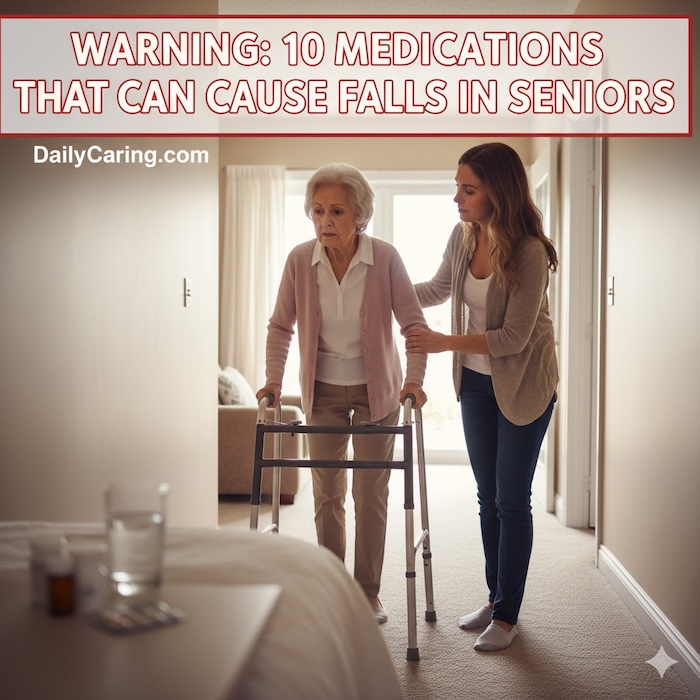Broaching the topic of fall prevention with an older loved one can feel like navigating a minefield. You want to protect them, but the conversation often triggers defenses about independence and capability.
It’s a delicate balance between expressing care and avoiding confrontation. But what if you could transform this potentially tense discussion into a collaborative, supportive dialogue? This helpful guide provides the exact words and strategies to approach this critical topic with empathy and respect, helping you partner with your loved one to create a safer home environment, before a fall makes the conversation an emergency.

Much Can be Done to Prevent Falls in Seniors
Falls may seem like an inevitable part of aging, but there’s actually a lot that can be done to reduce fall risk.
Preventing falls in seniors keeps them healthy and independent for as long as possible and reduces caregiver stress.
Productive conversations about reducing fall risk and simple changes at home can significantly reduce your older adult’s chances of falling.
But those discussions can sometimes be challenging.
To make these sensitive conversations easier, we found a helpful free guide from the National Council on Aging and the National Alliance for Caregiving.
The guide explains why fall prevention is a serious issue, covers fall prevention basics, and includes a step-by-step conversation guide to help you take action to prevent falls.
Here is an overview of the guide.
Why Reducing Fall Risk is So Important
Each year, 3 million seniors are treated in emergency rooms because of a fall, resulting in over 800,000 hospitalizations for resulting injuries.
For many older adults, a fall can cause serious injuries like hip fractures, broken bones, and head injuries. This significantly worsens mobility, health, independence, and well-being.
Research also shows that after someone’s first fall, caregivers report a significant increase in caregiver burden, fear of falling, and depression.
Special Conversation Guide Helps Mitigate the Risk of Falls
We like this free guide because it’s easy to understand and includes helpful checklists.
The information is straightforward and broken up into three sections. Here’s what they cover:
Step 1: Is it time to talk about fall prevention?
This handy checklist helps you determine whether your older adult is at risk of falling.
Please answer the questions on their behalf to gauge their fall risk. A score of 4 or more points indicates that the person may be at risk of a severe fall in the future.
Next, answer the questions for yourself to assess your fall risk—you need to be safe, too.
Step 2: Talk about fall prevention with others
If the checklist in Step 1 indicates that your older adult’s fall risk is high, the next step is to talk with them about it.
The list in Step 2 walks you through preparing for a successful conversation, offers suggestions on what to say, and helps set reasonable expectations.
Step 3: Develop a fall prevention action plan
In the third step, get seven tips for creating an action plan to reduce fall risk.
The risks you identified in Step 1 and the conversation notes in Step 2 will help you create the plan.
Additional resources
Get additional information like infographics, brochures, tip sheets, videos, and more.
Final Thoughts on Reducing Fall Risk for Seniors
Initiating this conversation is one of the most proactive and loving steps you can take. It’s not about stripping away independence, but about building a foundation of safety that preserves it for years to come.
Your calm, prepared approach shows your loved one that you are their ally, not their adversary, in the goal of keeping them healthy and at home. Remember, this isn't a one-time talk, but the start of an ongoing partnership.
By using this guide, you’ve equipped yourself to champion their safety with compassion, turning a moment of potential conflict into an opportunity for connection and care.
Recommended for you:
- 6 Age-Related Changes That Increase Senior Fall Risk and What to Do About Them
- 3 Easy Balance Exercises Prevent Falls in Seniors
- 10 Medications That Cause Falls: Use with Caution
About the Author

Connie is the founder of DailyCaring.com and was a hands-on caregiver for her grandmother for 20 years. (Grandma made it to 101 years old!) She knows how challenging, overwhelming, and all-consuming caring for an older adult can be. She also understands the importance of support, especially in the form of practical solutions, valuable resources, and self-care tips.













